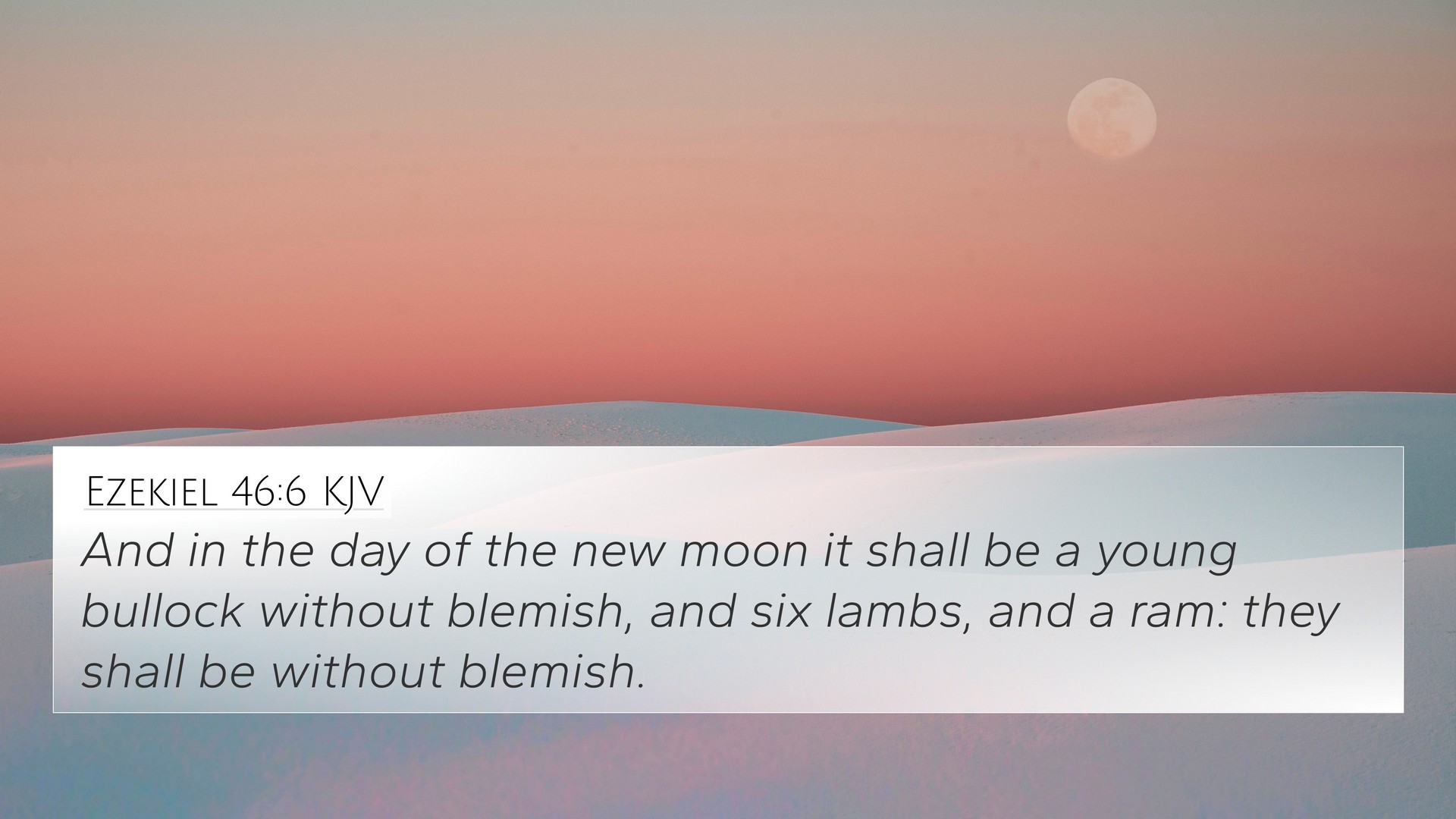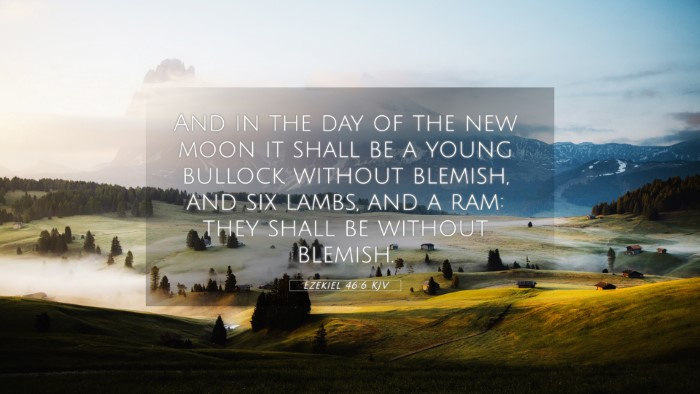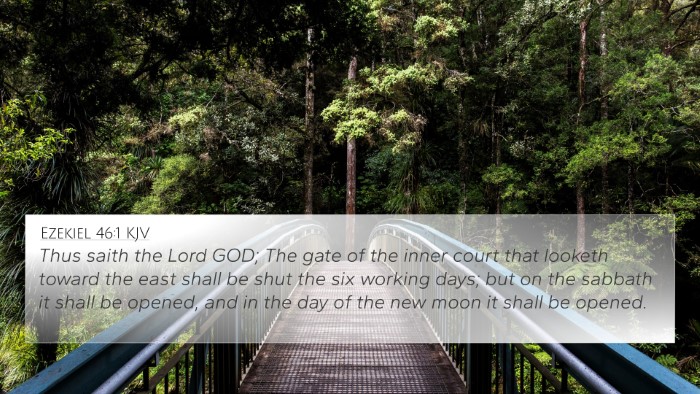Ezekiel 46:6 - A Summary of Insights
Ezekiel 46:6 presents a profound exploration of the temple rituals and the significance of worship in the life of Israel. This verse states:
"And in the day of the new moon it shall be a young bullock without blemish; and six lambs, and a ram without blemish." (Ezekiel 46:6)
This verse reflects God's instructions regarding the sacrifices to be made on the new moon, emphasizing the importance of such observances in Israel's worship practices.
Interpretative Insights from Public Domain Commentaries
By examining various renowned public domain commentaries, including those of Matthew Henry, Albert Barnes, and Adam Clarke, we can gather comprehensive insights into this verse's significance.
Matthew Henry's Commentary
Matthew Henry highlights the ritualistic aspect of worship depicted in this passage. He notes that the new moon represents a time of renewal and spiritual reflection. The specified sacrifices of a young bullock, six lambs, and a ram without blemish symbolize purity and the devotion required in worship. Henry emphasizes that such ceremonial acts were crucial for the Israelites as they sought to maintain their covenant relationship with God. The insistence on unblemished sacrifices also points to the overall theme of offering one's best to God in worship.
Albert Barnes' Notes
According to Albert Barnes, the mention of the new moon is significant as it marks the beginning of a new month in the Jewish calendar, symbolizing new beginnings and divine provision. Barnes elaborates on the specified offerings, indicating that this ritual reflects God's desire for His people to remain ceremonially clean and spiritually aligned. The use of specific numbers, such as six lambs, reflects order and intentionality in worship. Barnes underscores the idea that worship is not only about the heart's intent but also about the external acts that accompany that intent, reinforcing the theme of authentic worship through obedience to divine instructions.
Adam Clarke's Commentary
Adam Clarke provides a practical perspective by analyzing the symbolism of the offerings in a broader context. He connects these rituals to the overall theme of sacrifice in the Scriptures, suggesting that the new moon offerings can be seen as a foreshadowing of the ultimate sacrifice of Christ. Clarke points out that the call to present unblemished offerings resonates with the New Testament teachings on holiness and the sacrificial nature of Christ. He argues that the observance of the new moon and the associated sacrifices serves as a reminder of God's faithfulness and the need for His people to approach Him with reverence and purity.
Cross-References
Ezekiel 46:6 connects with several other biblical passages that enhance our understanding of its themes. Here are some significant cross-references:
- Numbers 28:11-15 - Instructions for monthly offerings.
- Psalm 81:3 - Calls for the blowing of the trumpet on the new moon.
- Isaiah 66:23 - Importance of worshiping God from month to month.
- 1 Chronicles 23:31 - Details regarding appointed rituals and offerings.
- Colossians 2:16-17 - New moons as shadows of things to come.
- Hebrews 9:9-10 - Discusses rituals connected to the physical tabernacle.
- Revelation 21:23-25 - The eternal significance of light and worship in the New Jerusalem.
Thematic Connections and Interpretations
The themes of sacrifice, worship, and covenant are central to Ezekiel 46:6. Understanding this verse within the larger narrative of Scripture reveals connections to:
- The Nature of God: The requirement for unblemished sacrifices symbolizes God's holiness.
- The Role of Worship: Rituals and sacrifices serve as expressions of faith and acknowledgment of God's sovereignty.
- Covenantal Relationships: The acts of worship reaffirm the Israelites' commitment to their God and their identity as His people.
Application and Contemporary Relevance
For modern believers, Ezekiel 46:6 serves as a reminder of the importance of sincere worship and the principles underlying sacrificial giving. It prompts us to:
- Examine the condition of our spiritual offerings - Are we giving our best to God?
- Recognize the significance of regular worship and community gathering, akin to observing the new moon.
- Engage in spiritual reflection and renewal, celebrating new beginnings in our faith journeys.
Conclusion
Ezekiel 46:6, when viewed through the lenses of historical context, thematic analysis, and cross-referencing, unveils a rich tapestry of meaning that stretches across the biblical narrative. These insights remind us of the enduring nature of God's covenant and the responses He expects from His people, transcending time and continuing to resonate in modern worship practices.



